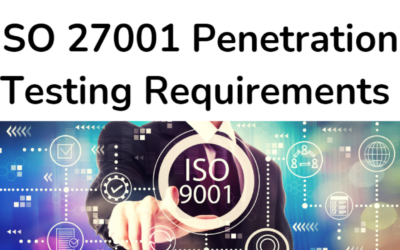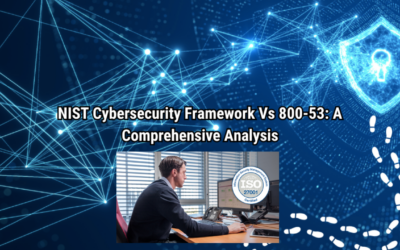ISO 27001 Consultants certification not only improves an organization’s security posture but also enhances its reputation and trustworthiness in the market. In the modern digital landscape, organizations are facing ever-increasing challenges related to data security, compliance, and risk management. Sensitive information ranging from employee records to intellectual property and customer data—has become one of the most valuable assets for businesses. As cyber threats, data breaches, and regulatory requirements intensify, adopting best practices to safeguard this data has become a strategic priority for organizations worldwide.
ISO 27001, part of the ISO/IEC 27000 family of standards, provides a globally recognized framework for implementing an Information Security Management System (ISMS). However, the process of becoming ISO 27001 certified can be complex and requires expert guidance. This is where ISO 27001 consultants come into play.
This article provides a detailed overview of ISO 27001 consultants, their role in helping businesses achieve certification, and the value they bring to the table in establishing a robust information security management system.
What is ISO 27001?
ISO 27001 is an internationally recognized standard that outlines the requirements for establishing, implementing, maintaining, and continually improving an Information Security Management System (ISMS). The standard provides a systematic approach to managing sensitive company information, ensuring that it remains secure. ISO 27001 is designed to help organizations protect information in several ways, including through physical security, network security, staff training, and risk management.
The core purpose of ISO 27001 is to ensure that all necessary security controls are in place to protect information from threats such as unauthorized access, data breaches, loss, or corruption. The certification process demonstrates an organization’s commitment to information security and its ability to mitigate risks, comply with regulations, and maintain business continuity in the face of security incidents.
The Role of ISO 27001 Consultants
ISO 27001 certification is a rigorous process that involves several stages, from risk assessments to the implementation of security controls, policy development, and documentation. While some organizations may attempt to manage the implementation of ISO 27001 on their own, many seek the expertise of ISO 27001 consultants to streamline the process and ensure full compliance with the standard.
ISO 27001 consultants are professionals who specialize in helping organizations implement information security best practices in alignment with the ISO 27001 framework. These consultants are typically experienced in information security, risk management, and regulatory compliance, providing organizations with the expertise needed to successfully navigate the certification process.
Key Responsibilities of ISO 27001 Consultants
ISO 27001 consultants play an essential role in guiding organizations through the implementation of an ISMS and ensuring they meet the necessary requirements for certification. Below are the key responsibilities that ISO 27001 consultants undertake when working with organizations:
1. Gap Analysis and Initial Assessment

One of the first steps in the ISO 27001 consultancy process is performing a gap analysis. The consultant assesses the organization’s existing information security practices and compares them with the requirements outlined in the ISO 27001 standard. This initial evaluation helps identify areas where the organization’s current systems and processes fall short of ISO 27001 compliance. A gap analysis is crucial for creating an action plan to bridge the divide between the organization’s current state and the desired state of ISO 27001 compliance.
The consultant will examine current policies, procedures, security measures, and existing risk management practices to determine what needs to be improved or added to align with ISO 27001’s requirements.
2. Risk Assessment and Treatment
One of the most critical components of ISO 27001 is conducting a risk assessment. ISO 27001 requires organizations to identify and assess risks to the confidentiality, integrity, and availability of sensitive information. Consultants play a vital role in facilitating this risk assessment process by helping businesses identify potential threats and vulnerabilities, evaluate the likelihood and impact of these risks, and prioritize them based on their severity.
Following the risk assessment, the consultant helps the organization develop a risk treatment plan, which outlines the specific actions needed to mitigate or manage the identified risks. This plan may involve implementing new security controls, updating existing ones, or transferring risks through insurance or other mechanisms.
3. Designing the ISMS and Developing Policies
Once the risks have been assessed, the next step is to design the Information Security Management System (ISMS). This involves developing policies, procedures, and protocols that align with the ISO 27001 standard and reflect the organization’s security objectives.
ISO 27001 consultants assist in drafting key policies related to information security, including:
- Information Security Policy
- Access Control Policy
- Data Protection and Privacy Policy
- Incident Response Policy
- Business Continuity Plan
Consultants ensure that the policies are tailored to the specific needs of the organization and that they reflect best practices in information security. These policies serve as the foundation of the ISMS, providing clear guidance for staff and management regarding how sensitive information should be handled and protected.
4. Implementing Security Controls
ISO 27001 requires the implementation of a range of security controls to mitigate identified risks and protect information. Consultants help organizations select and implement appropriate controls from Annex A of the ISO 27001 standard. These controls cover various aspects of information security, including access management, physical security, network security, encryption, and incident management.
The consultant will also help ensure that these controls are integrated into the organization’s existing workflows and processes, and that staff are trained on how to use and maintain them effectively.
5. Employee Awareness and Training
ISO 27001 emphasizes the importance of employee awareness and training in maintaining an effective ISMS. Consultants provide training sessions to staff members to ensure they understand the organization’s information security policies and their role in maintaining information security.
Training programs may include topics such as:
- Information security best practices
- Password management
- Social engineering awareness
- Incident response procedures
- Secure use of mobile devices and remote work practices
By equipping employees with the knowledge and tools to recognize and address security risks, consultants help foster a culture of security within the organization.
6. Internal Audits and Continuous Improvement
Once the ISMS has been implemented, ISO 27001 requires organizations to conduct internal audits to assess the effectiveness of their information security practices and ensure compliance with the standard. ISO 27001 consultants assist in performing these internal audits, identifying non-conformities, and recommending corrective actions.
Consultants also guide organizations in the process of continuous improvement, which is a central principle of ISO 27001. The ISMS must be regularly reviewed and updated to account for changes in the business environment, emerging threats, or updates to regulatory requirements. Consultants help organizations set up mechanisms for ongoing monitoring, audits, and reviews to ensure the ISMS remains effective and relevant over time.
7. Preparing for Certification and External Audits

The final stage of the ISO 27001 consultancy process involves preparing the organization for the certification audit. The consultant ensures that all necessary documentation is in place, the ISMS is fully implemented, and any outstanding issues are addressed before the external certification body conducts its audit.
ISO 27001 consultants support the organization during the certification audit process by providing guidance, ensuring all documentation is properly prepared, and helping to address any last-minute concerns raised by the certification auditors. Once the audit is complete, and if the organization meets all the requirements, it will be awarded ISO 27001 certification.
Benefits of Hiring ISO 27001 Consultants
The ISO 27001 certification process can be complex and time-consuming, especially for organizations with limited expertise in information security. Hiring an ISO 27001 consultant offers several advantages, including:
- Expert Knowledge: ISO 27001 consultants bring specialized knowledge and experience to the table, helping organizations navigate the certification process more efficiently and effectively. They understand the nuances of the ISO 27001 standard and are familiar with common challenges that businesses face during implementation.
- Time and Cost Savings: With an experienced consultant guiding the process, organizations can avoid mistakes, reduce delays, and ensure that all aspects of ISO 27001 are addressed. This results in a more efficient implementation and faster certification.
- Tailored Approach: Consultants can tailor their recommendations and solutions to the specific needs of the organization, ensuring that the ISMS aligns with the organization’s business objectives and risk profile.
- Ongoing Support: Consultants provide ongoing support even after certification, helping organizations maintain compliance, conduct regular audits, and update their ISMS as needed to keep up with evolving security threats and regulatory requirements.
- Risk Mitigation: Consultants assist in identifying and managing risks, which ultimately helps reduce the likelihood of data breaches, cyberattacks, and other security incidents that could damage the organization’s reputation or lead to financial losses.
Conclusion
ISO 27001 consultants play a crucial role in helping organizations implement robust information security management systems that align with international standards. Their expertise in risk management, policy development, and security controls ensures that organizations are well-positioned to achieve ISO 27001 certification and maintain a strong security posture in the face of evolving threats.



0 Comments